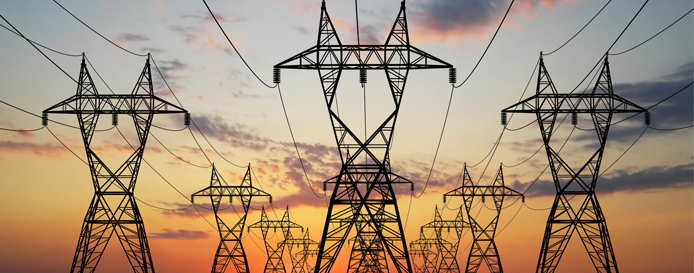Energy Procurement & Supply Management

Energy Procurement
Our procurement goal aligns with that of our clients – to secure the most cost-effective energy supply agreements and continually reduce expenses by staying proactive in identifying evolving market opportunities. Tradition Energy maintains a portfolio of over 189 electricity and natural gas suppliers worldwide, ensuring our clients access highly competitive pricing and a comprehensive range of energy management solutions. These services enable clients to identify, comprehend, and navigate the variables that influence their total energy expenditures, simplifying the procurement and management of energy. Our deep understanding of the wholesale market, power generation, and delivery, and their influence on pricing, sets us apart as experts in this field.
Our procurement process is transparent, creating a clear record of RFP requests and outcomes, and all relevant procurement data is cataloged for our clients’ reference. We offer clients the best pricing and terms while accommodating their internal decision-making processes. Following the blueprint provided by our Strategic Risk Management Services, Tradition Energy’s procurement process encompasses the following stages:
- Identification of potential suppliers
- Pre-sourcing review
- RFP process
- Contract review and negotiation
- Client services execution and follow-up
- Market and regulatory monitoring
- Data management and reporting
By following this well-defined process, we ensure our clients receive optimal energy solutions tailored to their unique needs.
Load Management
Load Management services are provided to clients to establish an integrated framework to unlock revenue through power generation, consumption management, optimization, and structuring. Creating the additional revenue source allows our clients to reduce their bottom line and possible funding of other energy efficiency initiatives, infrastructure opportunities, substations, and behind-the-meter generation assets.
Overview of Options:
- Demand Response: Enables customers to enroll in programs in select markets and receive compensation for decreasing their electricity usage in response to grid demands.
- Price Response (a voluntary initiative): Enables eligible customers in select markets with appropriate product structures and supplier contract language to lower their consumption and sell back their contracted price to the market.
- Coincidental Peak (a voluntary initiative): Enables customers to reduce their consumption during summer peak hours to reduce their TDU (Transmission/Distribution Utility) charges.
- Infrastructure: Address physical power delivery concerns and or export with onsite redundancy support.
Through our Load Management services, your organization can incorporate and utilize the following benefits:
- Develop a fully integrated Energy Strategy with 24×7 Operation and Load Optimization.
- Power generation scheduling, dispatch, and financial settlement for response programs and solar while addressing your infrastructure needs with physical power delivery and export.
- Mitigate energy expense reliability concerns by developing infrastructure upgrades, behind-the-meter solar, and thermal generation for prime or backup power.
- Actively manage, measure, and report on the performance of the initiatives.
Utility Tax Consulting
Overcharges for utility sales tax on your utility bills can contribute to an increase of more than 8% in your company’s total energy expenses, contingent on the local tax rate. The regulations regarding utility sales tax exemptions differ from state to state, but obtaining such an exemption can result in substantial sales tax refunds and ongoing cost reductions.
Tradition Energy offers assistance in the following ways:
- Organize a Predominant Use Study, administered by a licensed professional engineer, to determine the percentage of energy consumption dedicated to manufacturing or product production.
- Facilitate the necessary procedures to acquire a sales tax exemption.
- Secure a utility tax refund covering a period of up to 48 months, contingent on the specific regulations of each state.
Utility Negotiation
Much like our Utility Rate Analysis, Tradition Energy’s Utility Negotiation service entails an examination of our clients’ existing rate structures within regulated markets to ensure they align with their energy usage patterns. When we identify opportunities for improvement, we engage directly with the utility and negotiate on our clients’ behalf.
This service encompasses:
- Thorough research and assessment of alternative tariffs.
- Evaluation of alternative rate structures, their applications, and qualifications.
- The preparation of communications with utility providers.
- Skilled negotiation with utility companies on your behalf.
- Verification of billing adjustments and revisions.
- Implementation and ongoing management of accounts.
- Continuous monitoring and updates regarding regulatory developments that may prove advantageous in the future.

